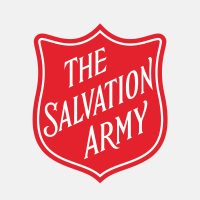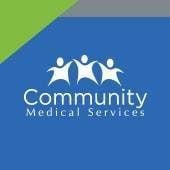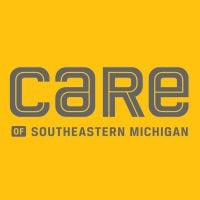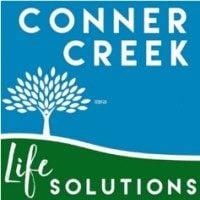Self - Help Addiction Rehab - Warren
Drug Rehab Center in Warren, Michigan
Self-Help Addiction Rehab - Warren provides comprehensive addiction and substance abuse treatment services, including inpatient, outpatient, and extended care programs, as well as holistic treatment options and care for co-occurring disorders.
About This Michigan Facility
Self - Help Addiction Rehab - Warren is an addiction treatment facility located in Warren, Michigan. Established in 1969, this facility has been dedicated to helping individuals suffering from alcoholism, opioid addiction, dual diagnosis, and drug addiction for over 50 years. Self - Help Addiction Rehab - Warren offers a comprehensive range of treatment options to meet the diverse needs of its patients. These include detoxification services, residential and outpatient programs, intensive outpatient programs, dual-diagnosis treatment, and sober-living or halfway house options. This facility is accredited by CARF (Commission on Accreditation of Rehabilitation Facilities), which ensures that it meets rigorous standards of care and excellence in addiction treatment. Self - Help Addiction Rehab - Warren is also affiliated with the Self Help Addiction Rehab network, further enhancing its dedication to providing high-quality and effective treatment for addiction.
Self - Help Addiction Rehab - Warren provides a wide range of services in order to address the complex and individual needs of individuals struggling with addiction and substance abuse. Their detoxification program offers a safe and supportive environment for individuals to rid their bodies of drugs and alcohol under the supervision of medical professionals. The residential and outpatient programs provide comprehensive treatment and support, tailored to the specific needs of each patient. Dual-diagnosis treatment is available for individuals struggling with addiction as well as underlying mental health issues. Self - Help Addiction Rehab - Warren also offers intensive outpatient programs, providing structured treatment while allowing patients to maintain their daily responsibilities. Additionally, they provide sober-living or halfway house options, which help individuals transition from treatment to independent sober living. With their range of services and commitment to excellence, Self - Help Addiction Rehab - Warren strives to provide effective and comprehensive addiction treatment to help individuals reclaim their lives and achieve lasting recovery.
Genders
Ages
Modality
Additional
Accreditations

CARF
The Commission on Accreditation of Rehabilitation Facilities (CARF) is a non-profit organization that specifically accredits rehab organizations. Founded in 1966, CARF's, mission is to help service providers like rehab facilities maintain high standards of care.
Conditions and Issues Treated
Many people who struggle with opioid addiction need to attend specific programs like methadone , Suboxone or Vivitrol clinics.
These types of programs will provide the patient with legal, prescription medications that can help them overcome their cravings for illegal opioids like heroin or fentanyl . If the patient has a chronic condition like Hepatitis C, they must undergo treatment before they can begin taking these medications.
Dual Diagnosis refers to someone who is both dealing with addiction and another mental health issue.
There are different kinds of Dual Diagnosis: A person who simultaneously experiences both a mental illness and an addiction disorder. Or, a person who experiences one or more coexisting (simultaneous) mental health conditions in addition to a primary substance use disorder.
Some conditions that commonly co-occur with addiction include:
- Personality Disorders (Borderline, Narcissistic)
- Mood Disorders (Bipolar Disorder, Depression, Anxiety Disorder)
- PTSD (Post Traumatic Stress Disorder), OCD (Obsessive Compulsive Disorder), ADHD (Attention Deficit Hyperactivity Disorder)
- Schizophrenia, Psychosis, Hallucinations, Delusions
Levels of Care Offered at Self - Help Addiction Rehab - Warren
This center offers a variety of custom treatment tailored to individual recovery. Currently available are Detox, Drug Rehab, Dual-Diagnosis, Inpatient, Intensive Outpatient, Outpatient, Residential, Sober-Living / Half-Way, with additional therapies available as listed below.
An addict may have to go through alcohol or drug withdrawal. While detox may be uncomfortable, it is not life-threatening. Detoxification allows the addict to rid the body of all traces of drugs or alcohol and gives the addict a clean slate for their recovery. In an inpatient or outpatient setting, detox can be managed medically.
Individuals who are suffering from severe addiction or have a high risk for dangerous health concerns are often recommended to receive inpatient treatment.
Choosing to enter an inpatient treatment program is beneficial for people who are suffering from severe addiction, or who have a high risk for dangerous health concerns.
Inpatient treatment is beneficial for:
- People who have a history of severe withdrawal.
- People who have attempted to overcome addiction on their own without success.
- People who have a history of relapse, or have recently relapsed.
- People at risk for drug overdose or withdrawal-related complications.
- People with medical conditions that are worsened by drug or alcohol use.
Outpatient addiction treatment is beneficial for people who are able to function well in their day-to-day lives. It is recommended for people who are not yet ready to end their relationships with friends or family members who might be encouraging drug and alcohol use.
Intensive outpatient treatment is beneficial for:
- People who are able to attend treatment more than 3 times per week.
- People who do not meet the criteria for inpatient treatment.
- People who are able to contribute to their own recovery outside of the treatment center.
- People who are motivated towards recovery.
- People who are able to overcome addiction on their own without the need for higher levels of care.
Outpatient treatment programs provide drug and alcohol addiction treatment through individual sessions with a counselor, group therapy, 12-step meetings, and other activities to help individuals gain sober living skills. Most programs are designed for those individuals who have completed a medically supervised detoxification program and provide opportunities for clients to begin the process of early recovery.
Outpatient programs also offer a level of medical support as needed and psychological backing through therapy. Clients are encouraged to live at home, though there may be some flexibility regarding this requirement based on the circumstances and needs of each patient.
Outpatient treatment is perhaps the most common type of dual diagnosis program available. It does not pose a significant financial burden on patients. However, it is essential to note that outpatient treatment does not provide the support and supervision given in residential programs. Some addicts may need this level of support to maintain their sobriety.
Sober Living Home (SLH) is a term used to describe houses where people recovering from addiction can stay. The goal of these places is to provide immediate support and protection that the addict needs and force them to live a life free from substance abuse.
SLH’s typically allow the addict to live there for 30, 60, or 90 days. This is intended to enable the addict time to develop a foundation of “sobriety,”; allowing them to adjust to living without the substance while building new life skills. During this time, addicts also typically attend regular addiction, education classes.
Residential treatment programs are those that offer housing and meals in addition to substance abuse treatment. Rehab facilities that offer residential treatment allow patients to focus solely on recovery, in an environment totally separate from their lives. Some rehab centers specialize in short-term residential treatment (a few days to a week or two), while others solely provide treatment on a long-term basis (several weeks to months). Some offer both, and tailor treatment to the patient’s individual requirements.
Therapies & Programs
Therapy sessions focused on the individual addict can provide much-needed guidance as they work toward overcoming their addiction. These types of sessions typically involve guidance from a therapist, who will help addicts identify and process their feelings and cravings.
During these sessions, addicts may develop plans for coping with the triggers that typically lead to relapse and learn how to avoid those triggers during their recovery process.
Different types of addiction treatment services are available. Within this article, group therapy is of interest due to its high success rate compared to individual therapy. Group therapy settings are beneficial because they allow recovering addicts to build a strong support network.
Benefits of group therapy are:
- Reduces feelings of isolation
- Immediate access to social support in the form of fellow addicts in recovery
- Lowers risk of relapse
- Increases rate of sobriety
- Builds coping skills that can be applied to everyday life
Payment Options Accepted
For specific insurance or payment methods please contact us.
Is your insurance accepted?
Ask an expert, call (888) 674-0062
Self Help Addiction Rehab Associated Centers
Discover treatment facilities under the same provider.
- Self Help Addiction Rehab - West Grand Boulevard in Detroit, MI
- Self Help Addiction Rehab in Detroit, MI
- Self - Help Addiction Rehab - Maybury Grand in Detroit, MI
Learn More About Self Help Addiction Rehab Centers
Additional Details
Specifics, location, and helpful extra information.
Warren, Michigan 48092 Phone Number(586) 983-2670 Meta DetailsUpdated November 25, 2023
Staff Verified
Patient Reviews
There are no reviews yet. Be the first one to write one.
Warren, Michigan Addiction Information
Michigan has the second-highest rate of drug and alcohol abuse in the nation. Heroin is linked to more than 50% of the state's hepatitis C cases. Marijuana is the drug most often associated with crimes in Michigan, followed by methamphetamines. Opioids alone are responsible for almost 20% of all drug overdose deaths in Michigan.
The drug addiction problem in Warren, Michigan, is bad. In 2015, 9.5% of residents reported using illicit drugs. Additionally, 18.5% of residents reported binge drinking. In 2012-2013, the rate of current illicit drug use was 8.3%. 8% of high school students in Warren, Michigan, have used prescription drugs for non-medical reasons. In Warren, the most common types of treatment include inpatient or residential rehab, outpatient rehab, and sober living homes.
Treatment in Nearby Cities
- Coldwater, MI (108.4 mi.)
- Romulus, MI (27.8 mi.)
- Ontonagon, MI (430.7 mi.)
- West Branch, MI (135.5 mi.)
- Three Oaks, MI (190.0 mi.)
Centers near Self - Help Addiction Rehab - Warren
The facility name, logo and brand are the property and registered trademarks of Self - Help Addiction Rehab - Warren, and are being used for identification and informational purposes only. Use of these names, logos and brands shall not imply endorsement. RehabNow.org is not affiliated with or sponsored by Self - Help Addiction Rehab - Warren.









